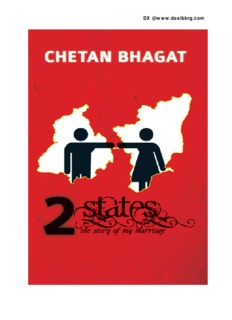Unlocking Human Potential: Books for Building Unstoppable Teams in the Hybrid Era
The way we work has changed forever. The shift to hybrid work—where teams are distributed across office spaces, homes, and sometimes time zones—has created both a leadership challenge and a golden opportunity. As organizations navigate this new frontier, the key to success lies in unlocking human potential and building teams that are not just functional, but unstoppable.
Leaders, managers, and team builders are turning to a new generation of books that offer wisdom, strategy, and inspiration. From vulnerability-based leadership to radical team alignment, these books are equipping readers to foster stronger company culture, boost employee engagement, and drive results in a world where collaboration no longer happens by default.
In this roundup, we explore the books helping leaders build cohesive, high-performing teams—even when those teams may never share the same room.
The Hybrid Era: A New Test of Leadership
Hybrid work isn’t just remote work with an office option. It requires a complete rethinking of how teams communicate, build trust, collaborate, and stay motivated. Leaders must now:
-
Ensure inclusion and visibility for remote and in-office workers alike
-
Foster emotional safety and trust without daily face time
-
Keep people connected to purpose, even across screens
-
Create rituals, rhythms, and recognition systems that unify
With burnout, disengagement, and digital fatigue on the rise, building unstoppable teams today demands empathy, intentionality, and a renewed commitment to people-first leadership.
1. Dare to Lead by Brené Brown
Core Message: Courageous leadership begins with vulnerability and trust.
Brené Brown, known for her groundbreaking work on shame, empathy, and leadership, offers a timely roadmap for modern leaders. In Dare to Lead, she argues that the strongest teams are built not through perfection, but through psychological safety, transparency, and shared courage.
Brown introduces tools like “rumbling with vulnerability,” living into your values, and cultivating trust in small moments—all crucial for navigating hybrid complexity.
Why It Resonates in 2025: In a distributed work environment, vulnerability isn't a liability—it's the connective tissue. Leaders must show up as whole humans to inspire the same from their teams.
Notable Quote:
"Clear is kind. Unclear is unkind."
Best For: Team leads, executives, HR professionals, and hybrid managers seeking to build emotionally intelligent cultures.
2. All In: How Great Leaders Build Unstoppable Teams by Adrian Gostick & Chester Elton
Core Message: Teams thrive when they feel safe, connected, and recognized.
In All In, Gostick and Elton explore what makes the most resilient and productive teams different. Their research points to clarity of purpose, a sense of belonging, and a culture of recognition as essential drivers of performance.
With data from thousands of employees across industries, they offer a step-by-step guide to building trust and commitment. The book is filled with real-world examples, tools for team check-ins, and strategies for celebrating wins.
Why It Resonates in 2025: Hybrid teams are especially prone to silos and disengagement. All In provides the structure and language leaders need to unify teams, no matter where people log in from.
Notable Quote:
"A strong culture isn’t a perk—it’s a performance driver."
Best For: Mid-level managers, culture strategists, and team builders.
3. The Culture Code by Daniel Coyle
Core Message: High-performing teams are built through safety, vulnerability, and purpose.
Coyle takes readers inside some of the most successful groups in the world—from Pixar to Navy SEALs—to uncover what makes their teamwork exceptional. He outlines three skills leaders can develop: building safety, sharing vulnerability, and establishing purpose.
Coyle’s observations are especially valuable in hybrid settings, where culture must be engineered intentionally—not left to office osmosis.
Why It Resonates in 2025: With watercooler talk gone and hallway chats replaced by Slack threads, leaders need deliberate practices to keep teams aligned, engaged, and emotionally connected.
Notable Quote:
"Culture is not something you are—it’s something you do."
Best For: Founders, senior leaders, HR executives, and anyone tasked with sustaining a remote-first culture.
4. Remote Not Distant by Gustavo Razzetti
Core Message: Culture and connection don’t require co-location.
This book is tailor-made for the hybrid and remote future. Razzetti challenges outdated myths about productivity and innovation in virtual teams. He offers frameworks for building intentional cultures where autonomy, communication, and experimentation thrive.
From asynchronous rituals to digital feedback systems, Razzetti provides concrete steps for managers overwhelmed by hybrid complexity.
Why It Resonates in 2025: As hybrid becomes the norm rather than the exception, books like Remote Not Distant equip leaders with tools to make virtual work deeply human.
Notable Quote:
"The future of work is not about where—we work—it’s about how we work together."
Best For: Startup teams, remote-first organizations, and people leaders redesigning workflows for flexibility.
5. The 5 Dysfunctions of a Team by Patrick Lencioni
Core Message: Trust is the foundation of great teams—and its absence leads to breakdown.
Though not new, Lencioni’s business fable remains deeply relevant. He identifies five core dysfunctions that sabotage team performance: absence of trust, fear of conflict, lack of commitment, avoidance of accountability, and inattention to results.
In hybrid settings, these dysfunctions can amplify quickly. Without face-to-face connection, misunderstandings grow, feedback is avoided, and alignment weakens. Lencioni’s framework helps diagnose and correct these issues early.
Why It Resonates in 2025: The simplicity of the model makes it a go-to for managers navigating the added complexity of virtual dynamics.
Notable Quote:
"Trust is knowing that when a team member pushes you, they’re doing it because they care."
Best For: New managers, facilitators, and leadership teams in transition.
Themes Emerging from the Literature
Across these books, certain core themes keep appearing—pointing to a new model of team building in the hybrid era:
1. Trust is Everything
Without daily physical presence, teams need stronger trust foundations. That trust is built not in grand gestures, but in consistent, small moments of transparency, care, and accountability.
2. Culture Must Be Intentional
Gone are the days when office perks defined culture. Today, leaders must design culture consciously, with shared rituals, inclusive language, and values that show up in action.
3. Communication is the Glue
Clarity is kindness in hybrid work. Successful teams over-communicate thoughtfully, set expectations clearly, and use a mix of synchronous and asynchronous methods to stay aligned.
4. Recognition Drives Performance
Appreciation can’t be passive. Especially when remote, leaders must find meaningful ways to recognize efforts, celebrate wins, and keep morale high.
5. Purpose Unites Distributed Teams
When teams are spread out, a clear and inspiring mission becomes the magnet that keeps them pulling in the same direction.
Publishing Trends: Where Hybrid Culture Books Are Headed
With the ongoing evolution of work, the publishing industry has responded in kind. There’s been a noticeable rise in titles focused on human-centered leadership, including:
-
Books by behavioral scientists exploring digital workplace behavior
-
Memoirs from leaders who transitioned their companies to remote
-
Handbooks for people managers facing burnout and engagement crises
-
Illustrated and workbook-style formats for team exercises and planning
Publishers are also seeing strong performance in audiobooks and bite-sized guides, reflecting the need for learning that fits into busy, screen-saturated schedules.
Suggested Pairings and Companion Reads
If you’re curating a comprehensive reading list, consider adding:
-
Radical Candor by Kim Scott – on giving feedback without fear
-
Team of Teams by Gen. Stanley McChrystal – on decentralization and agility
-
Bring Your Human to Work by Erica Keswin – on making work more humane
-
Together by Vivek Murthy – on the crisis of loneliness and how to build connection
These titles deepen the conversation and broaden your leadership lens.
Conclusion: Human Potential is the Competitive Edge
In a world where technology evolves faster than we can adapt, human connection remains the true X-factor. Building unstoppable teams in the hybrid era isn’t about micromanaging productivity—it’s about cultivating trust, purpose, and belonging.
The books reviewed here don’t just offer strategies—they offer hope and clarity for leaders trying to make sense of this new era. They remind us that even when teams are scattered across cities and continents, they can still feel united, inspired, and unstoppable.
If you’re a leader, publisher, or reader on a mission to unlock human potential—these books are your blueprint.







